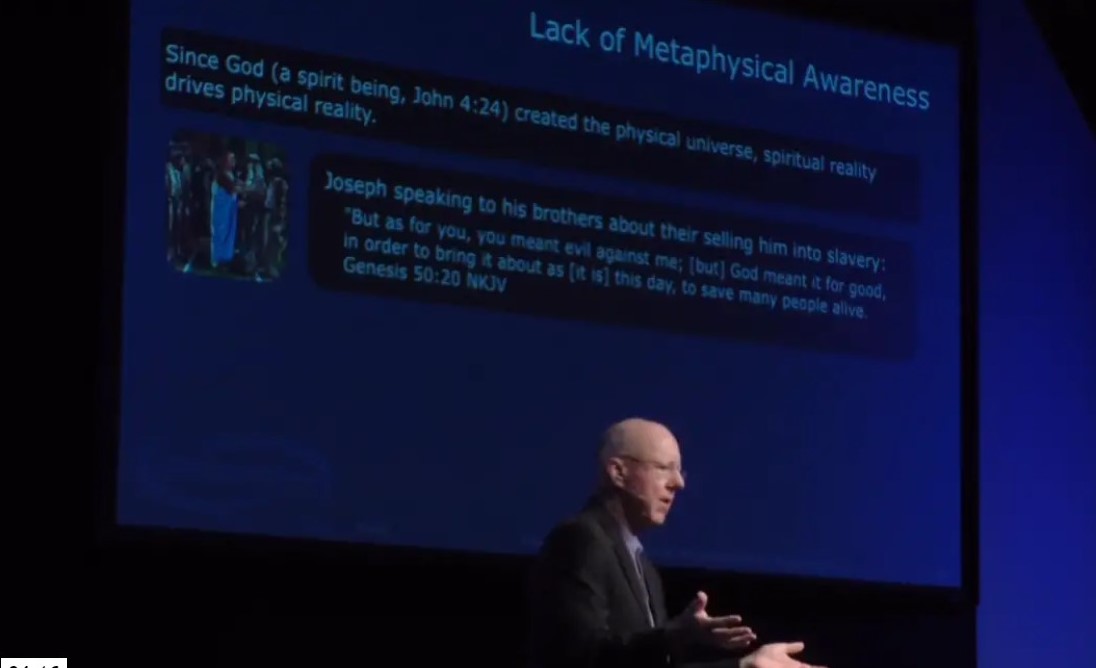 |
||||||
June 1, 2019 |
||||||
Gleanings |
||||||
|
||||||
by Gerald R. Chester, Ph.D. |
||||||
| This past April, Tiger Woods won the Masters Golf Championship—his first major championship in eleven years. He has a total of fifteen majors, second only to the redoubtable Jack Nicklaus. There was much excitement surrounding his unexpected victory. But as exciting and surprising as this was, is there something deeper to consider—something beyond the natural? Specifically, what is the significance of this event from God’s perspective? One may quickly object to posing such a question; after all, Tiger has a jaded moral history. He was divorced by his wife for alleged multiple egregious incidences of marital infidelity. And even more recently arrested for driving while intoxicated. His moral choices raise questions about his spiritual state. How can one expect to learn profound lessons from a person with a history of moral lapses? We should keep in mind that God creates everyone for his purpose. And man’s flaws do not impair God’s ability to use people for his purpose. For example, in Scripture even a pagan king was referred to by God as “his anointed.”1 So let’s consider some lessons that can be learned from Tiger’s victory. Tiger’s victory was the culmination of a long journey. Clearly, one of his challenges was his toxic moral behavior. The book of Proverbs addresses the negative consequences of adultery in graphic terms: those who submit to this type of immortality will be brought “down to death.”2 Tiger’s victory is testimony that he did not receive the full consequences for his adultery, which intimates that he, on some level, repented. In addition to facing his moral demons, he had to overcome physical challenges. He underwent multiple back surgeries during the past decade. There were times when he could barely walk, much less play golf. Many thought he would never play golf again, but he did, and he won one of the most prestigious events in professional golf today. Furthermore, if you believe, at least in part, that God reveals his will in the creation of each human being through the application of the C4 principle,3 then living congruently with this principle will help people align with the will of God and, accordingly, enjoy the favor of God in their work. C4 is an acronym for calling, character, capability, and commissioning. Calling refers to the role of God as the caller, who specifically creates each human being for his purpose and, accordingly, God plants clues of his intent within each human heart. Character is a measure of maturity (alignment with God) that a person develops and is the most critical component of the C4 principle. Godly character is the seminal predicate for fully releasing human potential. Capability is the skill and ability given to a person congruent with their calling that, when developed, empowers human potential. Commissioning is the validation of a person’s calling by authority figures. The C4 principle is a divine gift to humans that enables a person to find and fulfill the purpose of God for his or her life. The C4 principle is like the law of gravity—a timeless universal principle (TUP)—it works for all whether they are conscious of it or not, and it facilitates divine favor. As noted above, character is the most critical element of the C4 principle. I don’t know much about Tiger’s character development. But there is some reason to believe that he has been influenced by Buddhism. (His mother is a Buddhist.4) Buddhism has a moral code that, arguably, was derived, in part, from Scripture, which could explain his character development. Although I am not aware of any evidence that Tiger is a Christian, he can still enjoy some divine favor through common grace by obeying God’s moral standards. Based on what I know of Tiger, consider the following analysis of his alignment with the C4 principle.
Though perhaps unwittingly, Tiger aligned with the C4 principle. He overcame adversity and performed at an elite level in a highly competitive field. This is a wonderful example for everyone. Will you find your C4 work assignment? Will you find the God-given passion in your heart? Will you apply yourself to overcome obstacles and never give up? Will you develop your skill and apply yourself to your life’s work with tenacity? Will you submit to the authority figures in your life and allow them to help guide you into alignment with your calling? In addition to the wisdom of applying the C4 principle, there is more. In the greater scheme of reality, what is real success? In the end, this is the relevant question. Temporal success must be seen in light of eternal success. The gospel of Luke provides an example of this truth. On one occasion, Jesus spoke a parable about the significance of thinking from God’s perspective. He said:
In this parable, Jesus distinguished between true wealth (being rich toward God) and temporal wealth (physical wealth). Both are important but true wealth trumps temporal wealth. Temporal wealth only has value in this existence, but true wealth has value now and for the next existence. The man in this parable was temporally successful but did not possess true wealth. Jesus did not critique him for his temporal wealth; rather, he critiqued him for failing to properly prepare his successors to steward the temporal wealth. This is an example of how God’s perspective can many times be different from ours. Seeing reality from God’s perspective is called metaphysical awareness. To draw more profound lessons from experiences like Tiger’s Masters victory requires metaphysical awareness. His victory was viscerally exciting, but the bigger lessons are about Tiger’s character development that empowered his potential. And the hint of multi-generational thinking in Tiger. Tiger’s multi-generational perspective was seen in how he passionately greeted his children after his victory and how he reflected on his own father, who passed in 2006. Tiger noted that his father greeted him after he won his first Masters tournament in 1997 and now, twenty-two years later, Tiger greeted his own children after his latest victory. Perhaps Tiger reflected on the generational legacy that he received from his father and saw his achievement in the context of the greater importance of preparing his children for their legacies. If he did, perhaps he is beginning to think more biblically and, if so, will enjoy the fruit of increasing alignment with God. What would be better toward building true wealth than modeling life aligned with the C4 principle and helping your children do the same? To live this way will make you rich toward God, which is true success. But the requisite power to so live comes not from man but through knowing Jesus as Lord and Savior. If you know him, may you grow in your relationship with him. If you don’t know him, may you come to know him. ____________________________________ |
||||||
| Quick links | ||||||
Life Lessons from Tiger (teaching from Acts 1) |
||||||
| Upcoming Training | ||||||
SLA Alumni Event: Blocks to Discovering Your Purpose |
||||||
| Recent trainings | ||||||
| Social Media | ||||||
| Gleanings | ||||||
| Other | ||||||
|
||||||







.png)